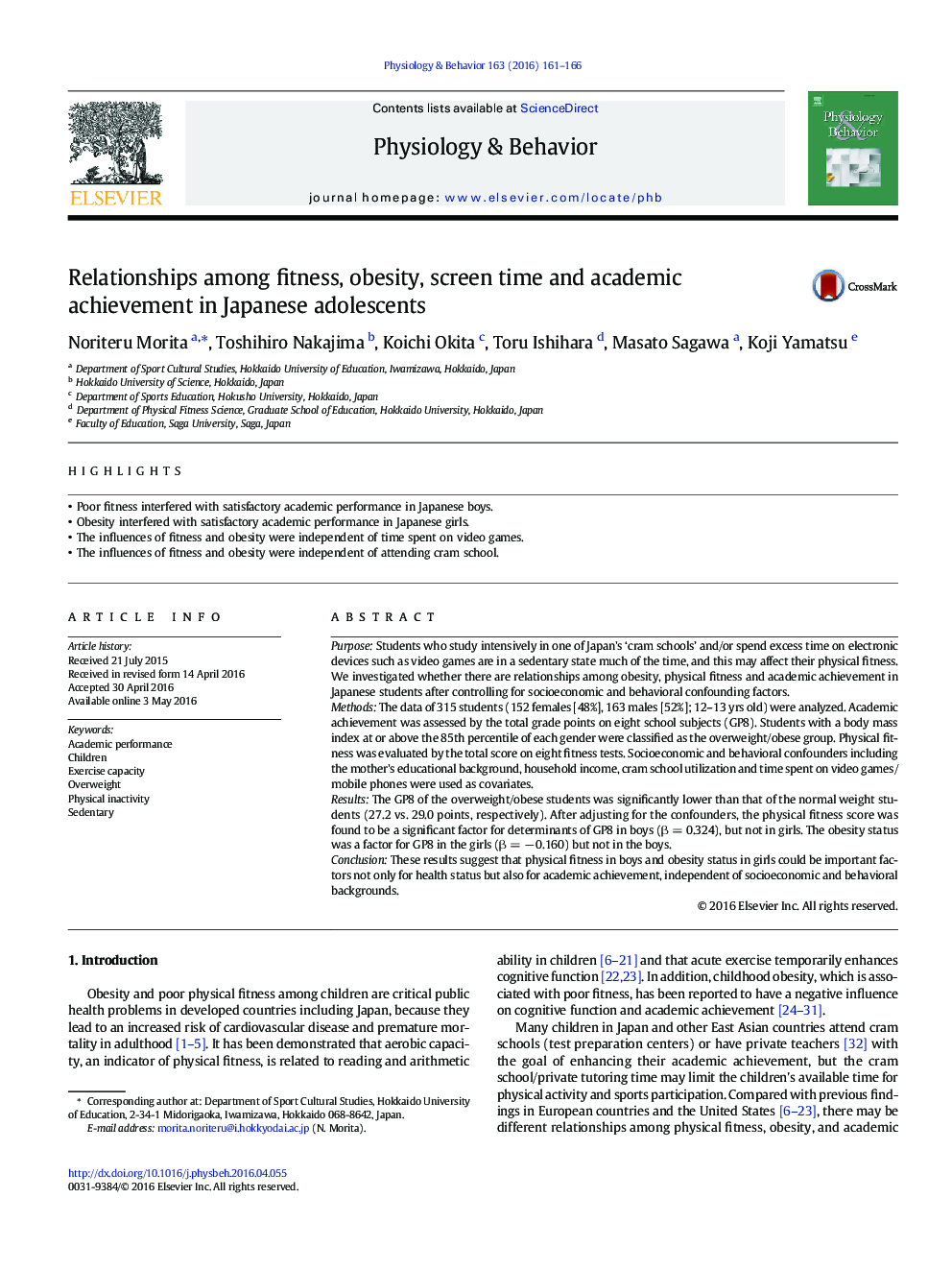| کد مقاله | کد نشریه | سال انتشار | مقاله انگلیسی | نسخه تمام متن |
|---|---|---|---|---|
| 5922910 | 1571155 | 2016 | 6 صفحه PDF | دانلود رایگان |
- Poor fitness interfered with satisfactory academic performance in Japanese boys.
- Obesity interfered with satisfactory academic performance in Japanese girls.
- The influences of fitness and obesity were independent of time spent on video games.
- The influences of fitness and obesity were independent of attending cram school.
PurposeStudents who study intensively in one of Japan's 'cram schools' and/or spend excess time on electronic devices such as video games are in a sedentary state much of the time, and this may affect their physical fitness. We investigated whether there are relationships among obesity, physical fitness and academic achievement in Japanese students after controlling for socioeconomic and behavioral confounding factors.MethodsThe data of 315 students (152 females [48%], 163 males [52%]; 12-13 yrs old) were analyzed. Academic achievement was assessed by the total grade points on eight school subjects (GP8). Students with a body mass index at or above the 85th percentile of each gender were classified as the overweight/obese group. Physical fitness was evaluated by the total score on eight fitness tests. Socioeconomic and behavioral confounders including the mother's educational background, household income, cram school utilization and time spent on video games/mobile phones were used as covariates.ResultsThe GP8 of the overweight/obese students was significantly lower than that of the normal weight students (27.2 vs. 29.0 points, respectively). After adjusting for the confounders, the physical fitness score was found to be a significant factor for determinants of GP8 in boys (β = 0.324), but not in girls. The obesity status was a factor for GP8 in the girls (β = â 0.160) but not in the boys.ConclusionThese results suggest that physical fitness in boys and obesity status in girls could be important factors not only for health status but also for academic achievement, independent of socioeconomic and behavioral backgrounds.
Journal: Physiology & Behavior - Volume 163, 1 September 2016, Pages 161-166
